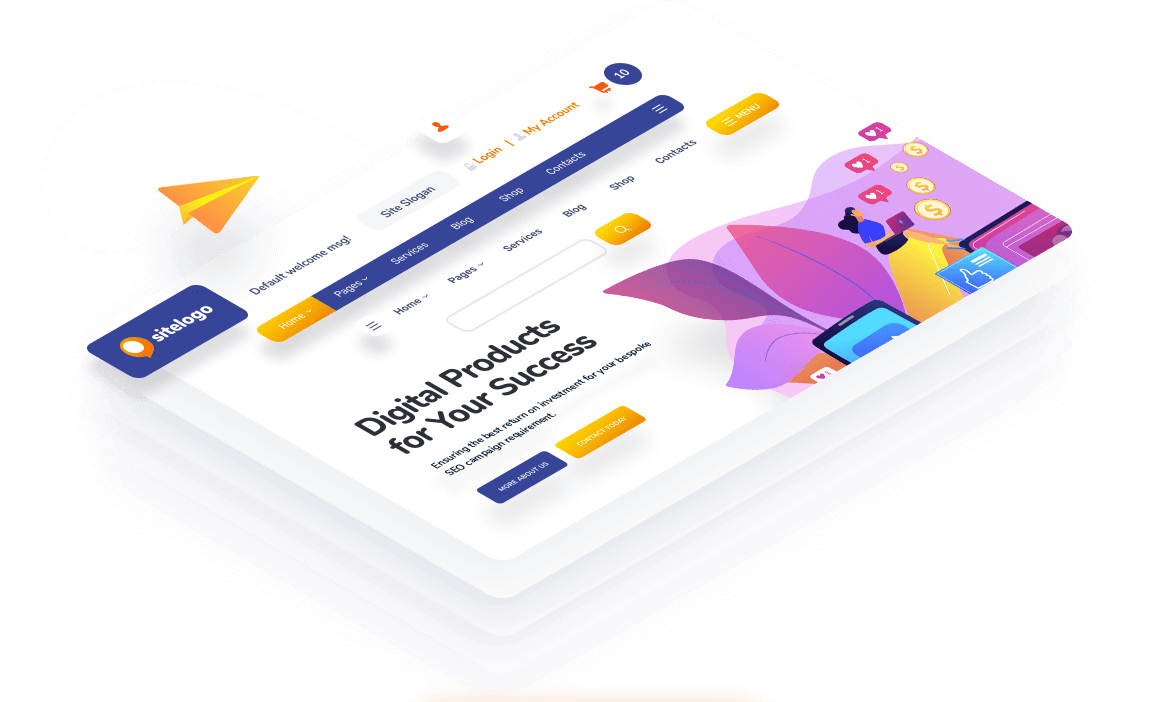
API Integration
Identifying The Best Practices for an Effective API Integration Process
Our Vision
APIs for Business
Dedicated business APIs make your services more efficient, allowing customers to do business with you more conveniently. They also enhance your services, enabling you to engage with customers at higher levels while bolstering your overall business efficiency.
To fully harness the benefits of API for your business, you need to implement API integration. To achieve this, you must understand what APIs entail and why they are essential for business growth and sustainability. Knowing how these factors align will guide you in making the right API solution for your company.

What is API Integration?
The acronym API means Application Programming Interface. In business, API integration is linking various application program interfaces into your company's software and databases to initiate or enhance communication.
Thanks to APIs, two pieces of software not originally designed to work together can achieve that seamlessly. As a result, your teams can access previously inaccessible resources and enhance their interaction with currently available ones.
API integration addresses all the technicalities involved with integrating APIs so that they can run smoothly alongside your already existing infrastructure. Because of this, API developers consider integration seriously when developing APIs.
A well-organized API design makes integration (linking them with your company's already existing infrastructure) seamless.

What Does Your Business Benefit from API Integration?
If you own a company in today's digitized business era, you should leverage technology's capabilities to maintain a competitive edge. The Application Programming Interface (API) is one such invention that can assist you in achieving this.
The acronym API is ubiquitous nowadays, even though only a few people are familiar with the term Application Programming Interface or API Integration. An API is a piece of software that acts as an intermediary between two or more applications, enabling communication between them. For example, sharing videos from your company's YouTube channel to Facebook is facilitated by APIs.
APIs are integral to the modern business ecosystem because they break communication barriers and enable seamless access. For instance, APIs allow customers to transact with your company's online store from PayPal. Thanks to API integration, two completely different platforms can work in perfect sync, fulfill a common goal, and provide businesses and customers with excellent service.
Types of API Integration
There are four significant types of API integration for web-based applications. They include the following:
Private or Internal APIs
Unlike public APIs, private or internal APIs are built for internal use. They are usually made for specific company needs and are available to internal systems. The management may give access to relevant team members within the organization.
Internal APIs are commonly developed to increase productivity and reuse services or for other purposes. After the development and deployment of the product, it becomes your sole property.
Nevertheless, you may grant an internal API developer authentication access through an IAM system (Identity and Access Management) for better administration.
Partner APIs
Partner APIs are similar to internal APIs because they aren't developed for the public.
However, they are designed to cater to multiple business partners instead of a single company.
They are among the most used APIs because their capabilities surpass traditional internal APIs, enabling them to communicate beyond the company's boundaries.
Partner APIs are usually open to public developer self-service portals. However, they require authorization.
Public or Open APIs
As the name implies, public APIs are built for public access. They are accessible to developers and the public and may sometimes require minimum authentication.
You may only need to register to receive your OAuth (API Key) to utilize them. Other times, access is free and entirely open to the public.
Composite APIs
Composite APIs are built to deliver multiple services and data. They are designed using API coordination capacity, enabling users to access different data endpoints from a single point.
Depending on the need, the developer can customize each API integration solution for your company.
What Can Your Business Benefit from Integrating with APIs?
There are several benefits to anticipate if your company undergoes API integration. The most important ones are among the following:
- Tap into The Abilities of Other Software
One important reason to consider API integration is that you can access other top-tier products and services and leverage them to your company’s advantage. For instance, your customers can access popular search engines, upload multimedia, make digital payments from multiple platforms, etc., from your official site.
With API integration, your company wouldn’t need its own dedicated payment gateway, search engine, content-sharing solutions, etc. You can harness the power of existing tools that customers are more familiar with. This helps you cut costs on software equipment while providing your customers with top-tier user experiences.
Create Smoother Communications for Your Company’s Internal Software
To successfully fly your business in this digital era, you may need to host a massive stack of business software. This may include separate customer relations, data collection and analysis, payment, and marketing applications. You also need to ensure that all these different products work in perfect harmony, and that’s where API integration is instrumental.APIs serve as grease within the ecosystem of software products and services. They facilitate seamless interactions between diverse application systems, enabling them to work together in perfect harmony. That additional layer of cohesion can go a long way in helping you achieve your business objectives. As a result, businesses can provide their customers with more improved services.
- Easy Access to Automation Technologies
Manual labor is no longer required for fundamental business operations such as product transportation and bookkeeping. Once incorporated into your system, APIs can seamlessly help you automate these operations.
As a result, you will notice an increase in your company’s productivity. Glitches in your business workflow will also reduce. Once your team familiarizes with the APIs, they’ll be grateful for the additional assistance.
Optimize Your Business Processes with a More Data-Driven Approach
“Data-drivenness” is a prominent buzzword in the corporate world today. Ultimately, the businessman with data has more market edge and is likelier to succeed. APIs can assist you with real-time access to relevant data and statistics to keep you ahead of competitors. They also provide you with the tools to manage these resources.API integration for business analytics offers you more control over your company’s insight. As a result, your company’s affairs will benefit from quicker and more instrumental decision-making.
- Generate More High-Quality Leads
Another effective way to leverage APIs is for lead generation. Finding new, valuable leads can take time and effort. You might also spend too much time searching in the wrong spots. However, integrating new API into your search efforts can help speed up the process.
For example, lead-driven APIs for social media can significantly benefit your company’s lead-generation campaign. Integrating such an API as part of your lead generation strategy can help you locate new buy-ready consumers and possible partners. It can also help you retain them and turn them into brand ambassadors.
Key Considerations for API Integration
Saying yes to API integration is something you should look forward to doing. However, before then, you might want to consider the following:
What are your business goals, and what challenges are being faced currently?
What kind of API solution(s) will cater to your needs?
What API integration services should you integrate: — Marketing, Finance, Task Management, or Customer Relations?
Does the scale of the API solution fit your business’s typical data scale?
Will the API solution be flexible enough to allow your business to migrate data when it’s time to expand your resources?
The business and software ecosystem is constantly evolving. As a result, your APIs should be flexible enough to adapt. Usually, API versions depreciate, but through proper integration, you should have some lead time to integrate new ones or upgrade your existing platforms.
Before you install API systems, you should ensure that they will be adequately monitored, updated, and managed. To achieve this, you can hire the services of a professional API integration agency. These experts are usually well-equipped with the necessary technologies and personnel to undertake the task effectively.
If you contract experts for your company’s API development and integration, they can help you answer these questions. They will also help you to make the right decisions for your API solution and oversee a seamless, stress-free integration.
Pros and Cons of API Integration
Data-drivenness enables companies to tap into the benefits that data provides. By tapping into more data and analytics, businesses can leverage these resources to solve underlying challenges and achieve business goals. However, there are several pros and cons to consider. Carefully evaluating these factors will enable you to develop a suitable strategy for your company’s API integration needs. Here are some of the most important things to consider:
API Integration Pros
API Integration is necessary for data sharing. It is also a key performance indicator (KPI) for businesses. Organizations with business-facing KPIs are likelier to produce more business value than their competitors. Here are some additional benefits to consider:
Enhanced Productivity:
By integrating APIs, you can significantly enhance your employees’ productivity. The APIs will provide them with all the data they need in a unified manner. As a result, they won’t have to re-enter the same info across multiple systems. Also, they won’t need to constantly navigate different systems to find valuable data to perform crucial tasks.
Improved Customer Experiences:
Customer data integration (CDI) APIs enable you to collect relevant customer behavior data. It also helps you combine data from different sources and share it across all your departments. As a result, your teams can leverage a 360-degree customer view and work together in real-time to provide customers with more quality experiences. This way, they can achieve the following:
- Perform targeted marketing
- Gain deeper market insights
- Make more accurate forecasts on future sales
- Identify and build more loyal customers
- Improve overall customer service
Leverage Accurate Data for More Meaningful Decision-Making:
APIs provide more accurate analytics, forming a core advantage for a sustainable competitive business edge. They source precise data and insights from relevant business systems and provide your teams with this info in real time. As a result, team managers can quickly analyze and build on this data to make meaningful conclusions when needed.
Improved Data Accuracy:
Insufficient data can spike a company’s operating costs and diminish revenue significantly. When your employees manually duplicate data across multiple systems, there is a greater risk of human errors. If this happens, your company may suffer the after-effects of data inaccuracy.
API integration enables you to propagate data in a unified manner. This way, you can reduce the risks of data inaccuracies and duplicate data while enhancing accurate insight and meaningful decision-making.
API Integration Cons
Although the advantages of API integration outweigh the cons, it’s still important to consider them. The drawbacks of integrating with APIs are generally minor and do not necessarily hinder their successful integration. However, understanding these challenges helps you to make better decisions when incorporating API systems for your business. Some important parameters to consider include the following:
Security:
Integrating data from multiple systems may pose new security risks. The data travels back and forth through various gateways, creating weak exploitation points for cybercriminals. As a result, when integrating with APIs, ensure to hire professionals who have these concerns adequately in check.
Upgrades:
Maintaining and upgrading multiple API systems can be complex and time-consuming. You must ensure that each design is adequately maintained and updated on time. A practical solution is to get all or at least most of your API solutions from one source. You can benefit from a more unified system maintenance and upgrade approach.
Cost:
Finally, integrating APIs can be expensive, especially if you’re integrating with multiple third-party systems. You may need to pay for each resource separately. However, you can significantly reduce the total cost by integrating with one or fewer API integration service providers. Choose a service provider that offers secure and updated products and services that meet your business needs.

Technology is the engine that gives your company a competitive edge in today’s very demanding business ecosystem. Through API integration, you can enhance and capitalize on your advantages. As a result, your business can boom more rapidly and attain its goals.
Professionals are the best way to go when integrating with APIs. They offer vast assortments of top-tier API solutions for virtually any need. As a result, you may significantly reduce costs while leveraging several multiple benefits, such as a more unified maintenance approach.
Feel free to contact us to learn more about how our API integration solutions can benefit your business needs.

Call Us




